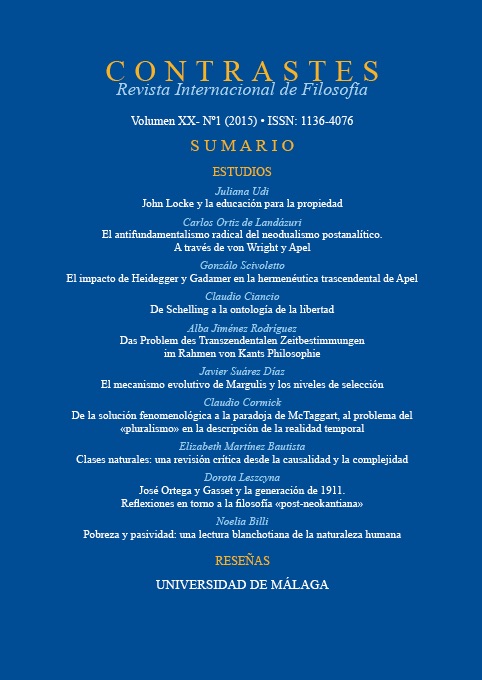John Locke and the Education for Property
DOI:
https://doi.org/10.24310/Contrastescontrastes.v20i1.1230Keywords:
Locke, Private Property, Education, Virtue, IndustriousnessAbstract
In this paper I address Locke ?s educational thought from an unusual perspective, namely, its relation to the Lockean theory of property. As shown here, Locke discriminates between the education of proprietors and non-proprietors. The former aims to promote some moral values intimately connected with private property, such as liberality and justice. On the other hand, the latter is reduced to the cultivation of industriousness, a moral virtue which will enable poor children to become proprietors in the future.Downloads
Metrics
Publication Facts
Reviewer profiles N/A
Author statements
Indexed in
-
—
- Academic society
- N/A
- Publisher
- Universidad de Málaga
Downloads
Published
How to Cite
Issue
Section
License
This journal provides immediate free access to its content under the principle of making research freely available to the public. All content published in Contrastes. Revista Internacional de Filosofía, are subject to the Creative Commons Attribution-NonCommercial-ShareAlike 4.0 license whose full text can be found at <http://creativecommons.org/licenses/by-nc-sa/4.0>
It is the responsibility of the authors to obtain the necessary permissions of the images that are subject to copyright.
Authors whose contributions are accepted for publication in this journal will retain the non-exclusive right to use their contributions for academic, research and educational purposes, including self-archiving or repository in open access repositories of any kind.
The electronic edition of this magazine is edited by the Editorial Service of the University of Malaga (Uma Editorial), being necessary to cite the origin in any partial or total reproduction.










5.png)
